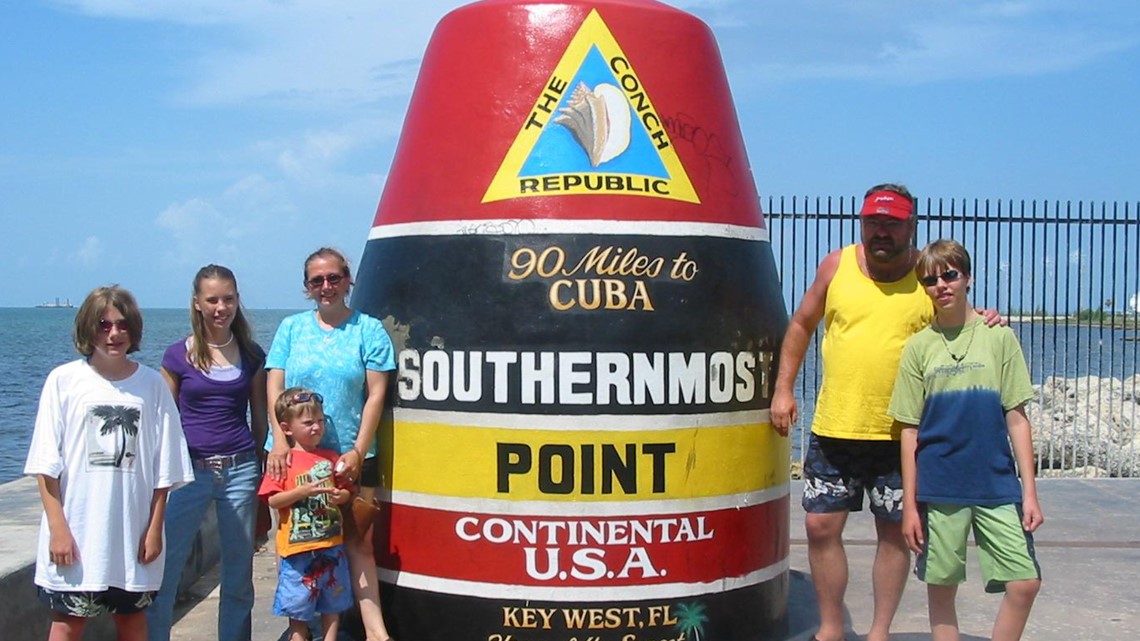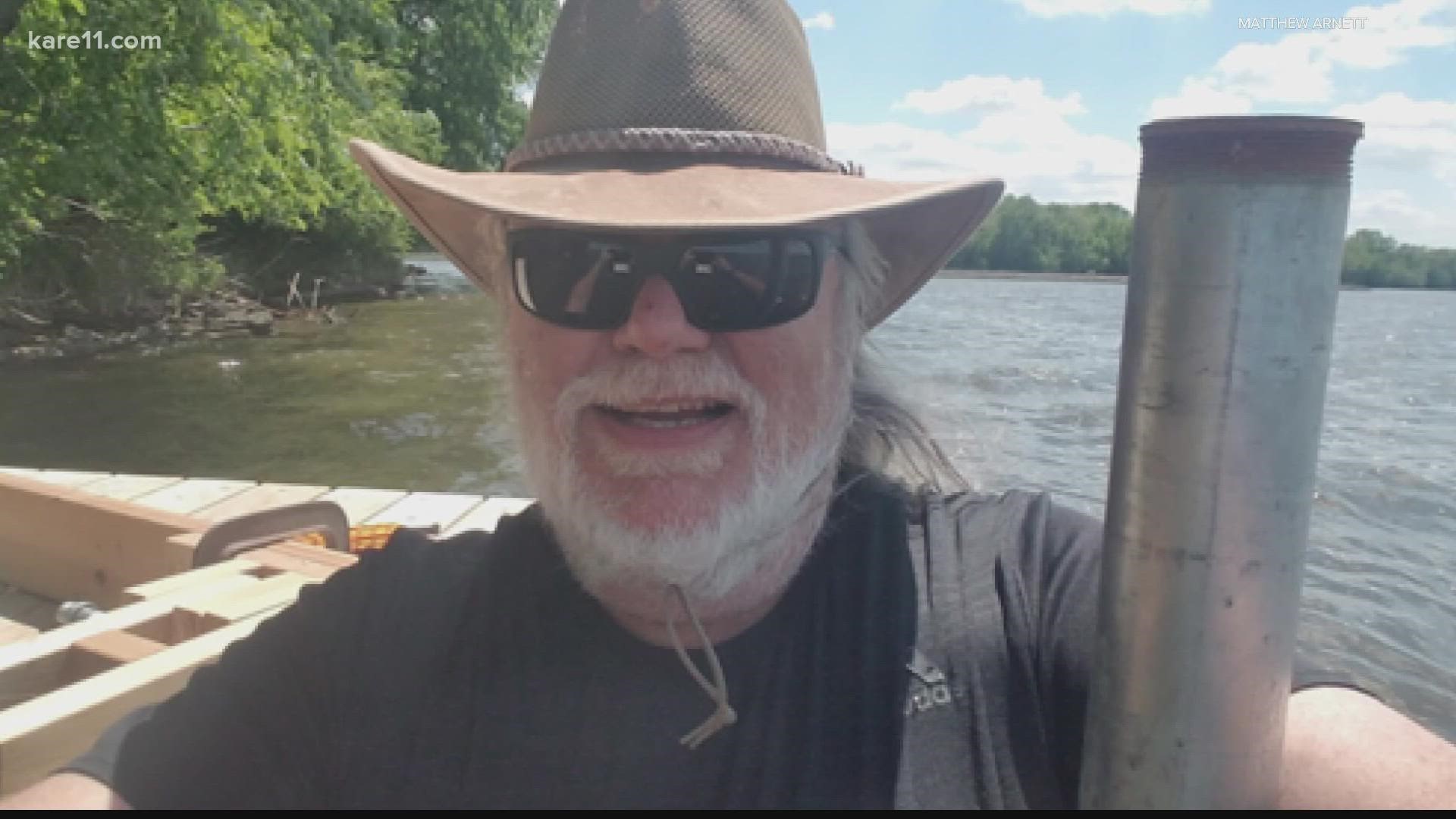MAPLEWOOD, Minn. — Matthew Arnett of Maplewood considers himself quite adventurous. He frequently sails during the warmer months, runs a nonprofit, and volunteers with Scouts BSA, in addition to his job in tech security.
However, of all these experiences, it was a trip on a cruise around 14 years ago that changed his life the most. During his travels along the Florida Keys, a stranger on the ship approached him.
"She started off by introducing herself a little and saying, 'This is a little awkward, but I’m an oncologist, and on the beach, I noticed something on your back, and you really should have that checked when you get back home,'" Arnett recalls the woman saying.
Arnett took her advice, and when he got home he went to a dermatologist who recommended a biopsy on his mole. Within a matter of days, the dermatologist let Arnett know it was malignant.


"[The dermatologist] put me in touch with an oncologist, and within a week, I was having it excised," he said.
The whole ordeal led Arnett to stay ahead of his health screenings, including getting regular Prostate-Specific Antigen (PSA) tests.
"Being a guy, you start getting your PSAs," Arnett said. "They checked Gleason scores. And my Gleason scores were high enough where we had to decide what plan of action to take."
Arnett opted for radiation treatment at HealthPartners Frauenshuh Cancer Center, which lasted 44 days.
Dr. Jayanthi Vijayakumar, an oncologist at HealthPartners, says Arnett did a commendable job taking control of his health and advises others to do the same.
"It's important to have a primary doctor and do your routine diligence, and you be your own advocate for your health," Dr. Vijayakumar said.
Dr. Vijayakumar says ultimately, you know your body best and any concerns should be addressed with your primary care physician.
"You would look into how your health has been overall and how things have been your family, and then take it into your own hands to talk to your primary care [doctor] about it."
When it comes to melanoma, there is an easy acronym for self-checks: ABCDE, which is outlined here by the CDC.
The American Cancer Society expects nearly 2 million Americans to receive a cancer diagnosis this year.
According to their 2022 annual report, released Wednesday, a total of 1.9 million new cancer cases and 609,360 deaths from cancer are expected to occur in the US in 2022, which is about 1,670 deaths a day.
Arnett is happy he came out on the other side of both cancer scares, allowing him to experience some of life's most important moments, like his daughter's wedding last year.
"I got to be there. I got my daddy-daughter dance," Arnett said.


He's eternally grateful an oncologist who didn't even know him stepped up to say something years ago.
He says if he had the chance, "I would tell her thank you, without a doubt."
Arnett now urges others to get screened for cancers if you and your primary care doctor deem it appropriate.
"Don't let COVID interrupt your health. You really need to get back in the cadence of seeing a doctor," he said. "I just can’t imagine not having some of the moments that I’ve had between then and now and in the future."
Watch more KARE11 Sunrise:
Watch the latest coverage from the KARE11 Sunrise in our YouTube playlist:

